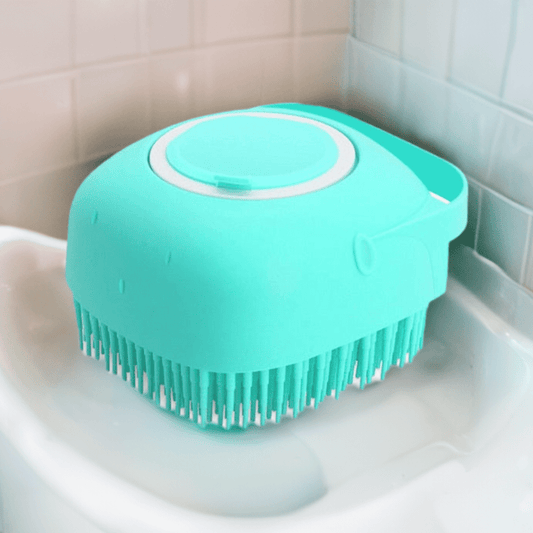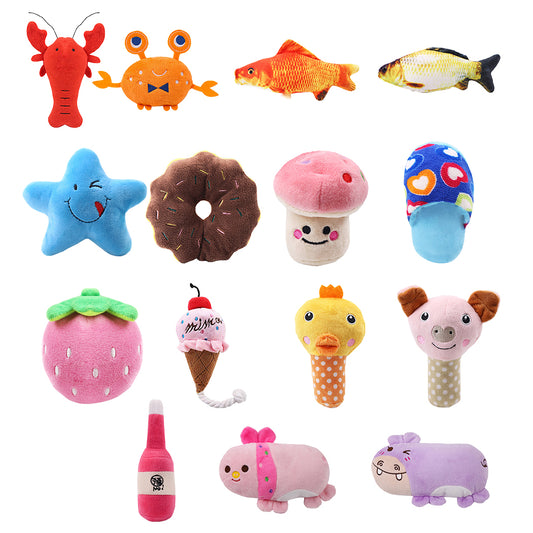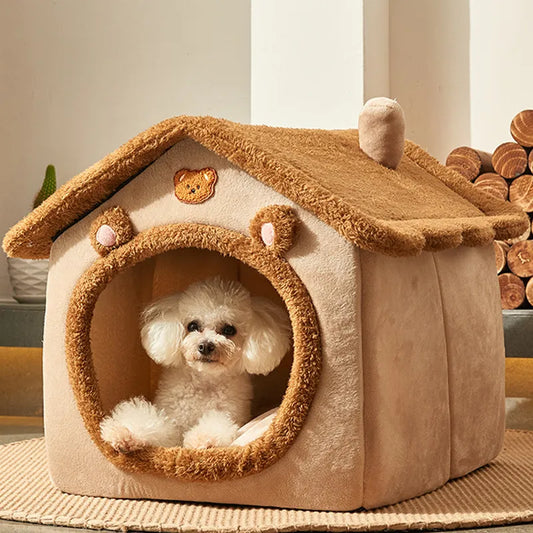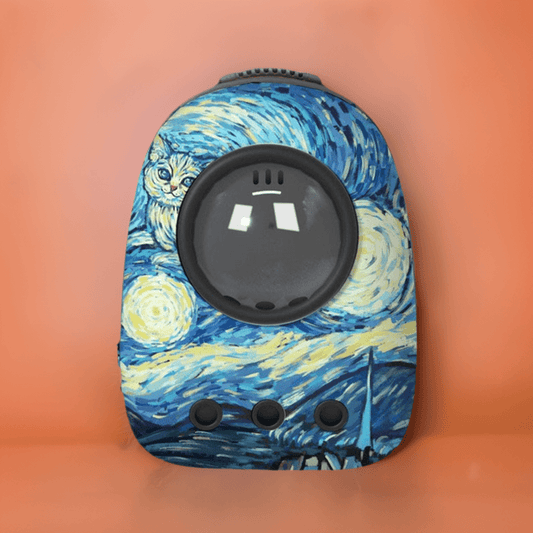Large domestic cat breeds are the epitome of majesty within the cozy confines of your home. Their impressive size is only matched by their affectionate nature, making them a unique addition to any household. If you've ever wondered what it's like to share your life with a larger-than-life feline friend, this guide is your gateway to understanding and cherishing the world of large domestic cat breeds.
Large Domestic Cat Breeds: A Royal Roster
Before we immerse ourselves in the enchanting details of each breed, let's take a moment to grasp what distinguishes a domestic cat as "large." Typically, these majestic felines weigh between 13 to 25 pounds or more, exuding a robust and commanding presence. They are characterized by their striking physical features, gentle temperaments, and the ability to steal the limelight wherever they go.
Maine Coon - The Gentle Giant of the North
The Maine Coon, often crowned as the "gentle giant" of the feline world, stands as one of the most colossal domestic cat breeds. These regal cats boast a weight range of 13 to 18 pounds for males, while females are slightly more petite. Distinguished by their friendly and sociable disposition, Maine Coons are the ideal choice for families. They flaunt luxurious, water-repellent coats, tufted ears, and a plume-like tail. But what truly sets Maine Coons apart? It's not just their size but also their endearing personality that wins hearts. Their large, expressive eyes seem to speak volumes, and they are known for their playful antics, making them perfect playmates for children.
Ragdoll - The Endearing Elegance
The Ragdoll exudes an endearing elegance that's hard to resist. Weighing in at 12 to 20 pounds, these gentle giants are characterized by their docile and affectionate personality. Males tend to be larger than females. With striking blue eyes, semi-long fur, and a penchant for going limp when held, Ragdolls live up to their name. They are renowned for their gentleness and the strong bonds they form with their human counterparts. Picture this: a Ragdoll in your arms, going limp like a ragdoll, as you cuddle and enjoy moments of pure serenity. Their gentle temperament makes them perfect for those seeking a soothing feline companion.
Savannah - The Exotic Enigma
For those who seek a feline friend with a touch of the wild, the Savannah fits the bill. Weighing between 12 to 25 pounds, these cats boast an exotic appearance reminiscent of a small wildcat. Savannahs are a unique hybrid breed, born from the union of domestic cats and servals, medium-sized African wildcats. Their allure lies in their striking spots and slender build. Despite their wild appearance, they are known for their affectionate and loyal nature. Imagine having a piece of the wild in your home. Savannahs offer a unique blend of wild and domestic, making them intriguing companions for those with an adventurous spirit.
Alternatives to Large Domestic Cat Breeds
While large domestic cat breeds are undeniably captivating, they may not be the right fit for everyone. It's essential to consider alternatives, especially if you have specific preferences or living constraints. Here are a few options to explore:
Siamese - The Talkative Charmers
Siamese cats may not be as large as Maine Coons or Ragdolls, but they make up for it with their charismatic personalities. Known for their striking blue almond-shaped eyes and distinct color points on their ears, face, paws, and tail, Siamese cats are vocal and affectionate. They enjoy engaging in conversations with their human companions and forming strong bonds.
British Shorthair - The Plush Purrers
If you prefer a quieter and more independent companion, the British Shorthair might be an excellent choice. These cats are known for their dense, plush coats, round faces, and calm demeanor. They are content with lounging by your side and enjoy a quiet, relaxed atmosphere.
Bengal - The Wild at Heart
If you're drawn to the exotic appearance of large breeds like the Savannah but prefer a domestic cat, consider the Bengal. These cats have a striking leopard-like spotted coat and are known for their active and playful nature. Bengals are often described as "wild at heart" due to their love for climbing and exploring.
Nurturing Nobility: Caring for Large Domestic Cat Breeds
Caring for these majestic feline friends is an art that requires attention to detail and dedication. To ensure their well-being and happiness, consider the following tips:
-
Nutrition Fit for Royalty: Feed your large domestic cat a high-quality diet tailored to their specific needs. Consult your veterinarian for personalized dietary recommendations. For Siamese cats, consider foods that promote their vocal and social nature. British Shorthairs thrive on a balanced diet to maintain their plush coat, while Bengals require high-energy diets to fuel their active lifestyles.
-
Grooming Grandeur: Regular grooming is imperative, particularly for breeds with long fur like Maine Coons, Ragdolls, and some alternatives. Brushing their coats not only prevents matting but also reduces shedding. Siamese cats have shorter fur but still benefit from regular brushing to maintain their sleek appearance. British Shorthairs require minimal grooming due to their short coats, while Bengals may need occasional brushing to remove loose hair.
-
Exercise for Excellence: These larger cats thrive on exercise, but each breed has unique activity needs. Maine Coons and Ragdolls enjoy interactive play and toys that mimic hunting. Siamese cats love to play and should have plenty of toys for stimulation. British Shorthairs appreciate gentle play and may not require as much exercise. Bengals, on the other hand, need active play and climbing opportunities.
-
Health is Wealth: Schedule regular veterinary checkups to monitor your cat's health and address any potential issues proactively. Each breed may have specific health considerations to keep in mind. Maine Coons, for example, can be prone to heart issues, while Siamese cats may have dental concerns. British Shorthairs may be prone to obesity, and Bengals require regular checkups to ensure they remain healthy and active.
-
Affection and Attention: Large domestic cat breeds are often affectionate and thrive on human interaction. Dedicate quality time to strengthen your bond with these majestic companions. Siamese cats, in particular, crave attention and social interaction. British Shorthairs appreciate gentle affection, while Bengals require mental stimulation and play to keep them happy.
By tailoring your care and maintenance routines to the specific needs of your chosen breed, you can ensure a happy and healthy life for your feline companion.
Frequently Asked Questions: What Curious Minds Want to Know
How do I choose the right large domestic cat breed for my family?
Selecting the ideal large domestic cat breed for your family depends on various factors. Consider your family's lifestyle, living space, and preferences. Maine Coons and Ragdolls are generally excellent choices for families with children due to their gentle nature. Siamese cats are talkative and social, making them great companions for families who enjoy interaction. British Shorthairs are calm and gentle, fitting well into quieter households. Bengals are ideal for active families seeking a touch of the wild.
What living space is suitable for large domestic cat breeds?
While larger living spaces are ideal, large domestic cat breeds can adapt to smaller environments as long as they receive adequate exercise and mental stimulation. Maine Coons and Ragdolls appreciate spacious homes, but regular playtime can compensate for smaller spaces. Siamese cats adapt well to apartments, provided they have toys and companionship. British Shorthairs are content in apartments or houses with enough space for lounging. Bengals thrive in homes with plenty of room for climbing and exploration.
What is the average lifespan of large domestic cat breeds?
On average, large domestic cat breeds have a lifespan of 12 to 15 years. However, with proper care and attention, they can live even longer, enriching your life for years to come.
Are large domestic cat breeds more susceptible to health issues?
Like all cats, large breeds can be prone to certain health issues. Regular veterinary checkups and a balanced diet can help mitigate these risks, ensuring a healthy and happy companion. Maine Coons may be predisposed to heart issues and hip dysplasia. Ragdolls can be prone to kidney disease. Siamese cats may experience dental problems. British Shorthairs may be prone to obesity. Bengals may require specific vaccinations and attention to their joint health.
Are there any large cat breeds that are hypoallergenic?
While no cat breed is entirely hypoallergenic, some large breeds, such as the Siberian or the Balinese, produce fewer allergenic proteins, making them a better choice for individuals with allergies.
Can I leash-train a large domestic cat breed?
Yes, many large cat breeds can be leash-trained with patience and proper training techniques. It's essential to start training them from a young age to ensure success.
Conclusion: Majestic Companions Awaiting Your Embrace
In the realm of large domestic cat breeds, magnificence knows no bounds. Whether you choose a Maine Coon, Ragdoll, Savannah, or another breed altogether, you invite regal charm and unconditional love into your life. Remember that with love, care, and understanding, your large feline friend will grace your days with joy and unwavering devotion.
Unleash the majesty of large domestic cat breeds into your life, and embark on a journey of companionship that will leave an indelible mark on your heart.



